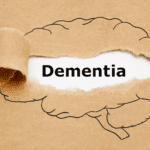In our society’s embrace of diversity and inclusivity, attention to the needs of individuals with learning difficulties is crucial. Facing unique challenges daily, these individuals require support that goes beyond basic needs, aiming for a life that is both fulfilling and autonomous.
In-Home Care: A Personalized Approach
A key element in this support system is in-home care. This approach stands in contrast to institutional settings, offering a more intimate and comfortable environment. At home, care is not just a service but a deeply personalised experience, catering to the individual needs of each person in their most familiar setting.
Combining Personal Care with Community Support
This article aims to blend detailed personal care insights with an understanding of the broader community and organisational support available. We’re not just exploring the practicalities of care but delving into the reasons behind it. Our goal is to provide a comprehensive guide that informs and empowers caregivers, families, and communities in their journey to support individuals with learning difficulties. Join us in this exploration of compassionate care and understanding.
The Critical Importance of Caring for Individuals with Learning Difficulties
Learning difficulties encompass a range of conditions that affect an individual’s ability to process, comprehend, and communicate information in the same way others do. This definition is broad, as the impact of learning difficulties varies widely from person to person. For some, these challenges might manifest in struggles with literacy or numeracy, while for others, it could mean difficulty in understanding and following social cues. The daily lives of those with learning difficulties are often marked by hurdles in performing routine tasks, understanding complex information, and interacting socially, which can affect their educational, professional, and personal growth.
Exploring Various Conditions
Among the spectrum of learning difficulties, conditions such as Autism, brain injuries, Down’s Syndrome, and Epilepsy stand out for their distinct characteristics and challenges. For instance, Autism may affect an individual’s ability to communicate and interact socially. Brain injuries can result in cognitive and physical impairments, while Down’s Syndrome is often associated with developmental delays. Epilepsy, although primarily known for its physical manifestations like seizures, can also impact cognitive functions. Each of these conditions requires a nuanced understanding and approach in caregiving.
The Spectrum from Mild to Profound
Learning difficulties can range from mild to profound, each with its unique challenges and care requirements. Individuals with mild learning difficulties might need occasional support in specific tasks, such as financial management or social interactions. On the other end of the spectrum, those with profound learning difficulties may require extensive, round-the-clock support in almost every aspect of daily living. This spectrum is critical for caregivers and family members to understand, as it guides the level of support and intervention needed to help the individual lead a fulfilling life.
Tailoring Care to Individual Needs
In-home carers provide invaluable support to individuals with learning difficulties, offering assistance that is deeply personalised and responsive to the unique needs of each individual. This personalization is a cornerstone of in-home care, distinguishing it from more generalised forms of support. The goal is to create an environment where individuals with learning difficulties feel understood, supported, and empowered to achieve their fullest potential.
How In-Home Carers Assist
In-home carers are equipped to handle a variety of tasks and challenges specific to learning difficulties. Their roles often include:
- Assisting with Daily Living Skills: This can range from help with personal hygiene and grooming to support in meal preparation and maintaining a clean living environment. The aim is to foster independence while ensuring safety and well-being.
- Educational and Developmental Support: Carers may provide educational assistance, helping with the development of literacy and numeracy skills, or offering support in other learning activities tailored to the individual’s abilities and interests.
- Social Interaction and Communication: They play a crucial role in facilitating social interactions, aiding in the development of communication skills, and providing opportunities for social engagement within the community.
- Behavioural Support: For individuals facing behavioural challenges, in-home carers can implement strategies to manage and mitigate these behaviours, often in coordination with healthcare professionals.
- Healthcare Coordination: They assist in managing medical needs, such as organising medication schedules, arranging healthcare appointments, and liaising with healthcare professionals to ensure cohesive care.
The Personalized Nature of In-Home Care
The personalised nature of in-home care is what truly sets it apart. Carers are not only tasked with the physical aspects of care but also with understanding the emotional and psychological needs of the individuals they support. This involves building a relationship based on trust and empathy, adapting strategies to suit individual preferences, and recognizing the small victories and challenges faced by those with learning difficulties. It’s a holistic approach that considers the entire well-being of the individual, aiming to enhance their quality of life in the most comfortable and familiar setting: their own home.
Community and Organisational Support
Access to Resources and Support Systems for Carers
Carers play a vital role in supporting individuals with learning difficulties, and having access to the right resources and support systems is crucial for them to perform their roles effectively. Organisations like the Carers Trust offer a wealth of resources designed to support carers in their journey. These resources include practical guides, emotional support networks, and information on how to navigate the complexities of care, ensuring that carers are well-equipped to handle the challenges they may face.
The Importance of Community Involvement and Organisational Backing
Community involvement and organisational backing are pivotal in creating a supportive environment for both individuals with learning difficulties and their carers. Community engagement provides a sense of belonging and social support, not just for those being cared for, but also for the carers themselves. It can lead to better understanding, reduced stigma, and more effective advocacy for the needs of individuals with learning difficulties. Organisations play a critical role in facilitating this involvement by providing platforms for connection, advocacy, and the dissemination of information.
Supporting Young Carers and Advocating for Policy Change
Special attention is required for young carers, who may be balancing their educational and personal growth with the responsibilities of caring for someone with learning difficulties. Organisations like the Carers Trust provide targeted resources and support for young carers, recognizing their unique challenges and needs. Additionally, these organisations are involved in policy advocacy, striving to influence policies and practices that affect individuals with learning difficulties and their carers. This advocacy is essential for ensuring that their rights are protected and their needs are met, both at the individual and systemic levels.
Condition-Specific Information and Resources
For carers of individuals with specific conditions such as Autism, Down’s Syndrome, or brain injuries, access to condition-specific information is invaluable. Organisations offer detailed guides and resources tailored to these conditions, providing carers with the knowledge and tools they need to provide effective and compassionate care. This information not only aids in understanding the unique aspects of each condition but also in developing specific strategies to support the individual’s well-being and development.
In summary, the combined efforts of community involvement and organisational support play a significant role in empowering carers and enhancing the quality of care provided to individuals with learning difficulties. Through access to a wide range of resources, support systems, and advocacy efforts, these entities contribute significantly to the overall well-being of both carers and those they care for.
Supporting Older Individuals with Learning Difficulties
Addressing Unique Challenges
As individuals with learning difficulties age, they encounter a unique set of challenges that necessitate a specialised approach to care. These challenges often stem from a combination of their existing learning difficulties and the typical issues associated with ageing. For example, an older individual with Down’s Syndrome may experience accelerated ageing, which can lead to early onset of age-related conditions like dementia. Similarly, those with lifelong conditions such as Autism might find changes in routine and physical health more distressing as they age. The key is to understand these overlapping challenges and address them with sensitivity and expertise.
Importance of Regular Health Checks and Routines
Regular health checks become increasingly important for older individuals with learning difficulties. These checks help in early identification and management of age-related health issues, which might be more pronounced or develop differently due to their existing conditions. It’s essential for caregivers and family members to be proactive in arranging these health assessments and ensuring that any medical advice is followed diligently.
Maintaining routines is equally vital. Familiar routines provide a sense of stability and security, which can be particularly comforting for older individuals facing the uncertainties that come with ageing. Whether it’s a daily walk, a specific mealtime, or a bedtime ritual, these routines can significantly enhance their quality of life.
Adapting Care for Older Individuals
Adapting care for older individuals with learning difficulties requires a flexible and informed approach. This might involve:
- Modifying the Living Environment: As physical mobility decreases, adjustments to the living space to make it safer and more accessible can be necessary. This could include installing grab rails, ramps, or other aids to assist with mobility.
- Enhanced Communication Strategies: With age, some individuals might experience a decline in hearing or cognitive abilities. Adapting communication methods to be more visual or straightforward can help in maintaining effective communication.
- Tailored Activities and Social Engagement: Engaging in activities that are suitable for their age and physical abilities, while also satisfying their interests, is crucial. It’s important to encourage social interactions to prevent isolation and promote mental well-being.
- Managing Comorbidities: Older individuals might have multiple health conditions simultaneously. Managing these effectively requires a coordinated approach between different healthcare providers and the carer.
- Emotional and Psychological Support: Addressing the emotional and psychological needs is just as important as physical health. Older adults with learning difficulties might experience feelings of loss, frustration, or anxiety as they age, and it’s important to provide them with empathetic and understanding support.
Key Points Summary
- Understanding Learning Difficulties: Learning difficulties encompass a wide range of conditions, each affecting individuals in unique ways. From Autism to Down’s Syndrome, understanding these conditions is crucial for effective caregiving.
- The Role of In-Home Carers: Personalized in-home care offers a comforting and familiar environment, allowing for tailored support. Carers assist with daily living skills, educational support, social interaction, and more.
- Community and Organisational Support: Resources and support systems from organisations like Carers Trust are invaluable. They provide necessary backing for carers and advocate for policies benefiting individuals with learning difficulties.
- Supporting Older Individuals: Older adults with learning difficulties face unique challenges. Regular health checks, maintaining routines, and adapting care strategies are essential for their well-being.
- Empowering Carers and Families: It’s important to empower carers and families with knowledge, resources, and community support to provide the best care.
We encourage our readers to actively seek out additional resources and support to enhance their caregiving journey. For comprehensive care solutions, tailored support, and a deeper understanding of caring for those with learning difficulties, visit Complete Homecare 24. Our expertise and resources can provide invaluable assistance in navigating the complexities of in-home care for individuals with learning difficulties. Remember, seeking help and support is a sign of strength and commitment to providing the best care possible.
Looking for nursing jobs in Northern Ireland? At Complete Homecare, we are always looking for like-minded individuals that can join our in-home carer team. Enquire here to join our home care service. Or, follow us on Instagram and see what services we provide directly to your feed.






1 Comment
Festive Activities For Adults With Learning Difficulties
6 December 2022[…] is a joyous season that is full of laughter, fun, and delicious food. For families of adults with learning difficulties, however, this time of year can be distressing. Loud music, unexpected visitors, flashing Christmas […]